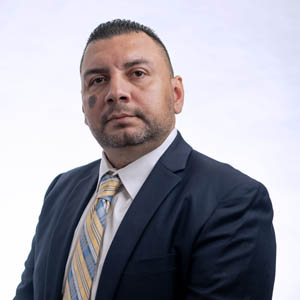Puerto Rico stock exchange seen as key to achieving economic freedom

PuPuerto Rico stands at a critical crossroads. For far too long, our economy has been shaped by a dependency mindset, rooted in decades of federal subsidies and limited local capital formation. Our national dialogue is often dominated by political status debates, yet the most urgent and actionable path forward lies not in Washington but within ourselves.
The only true independence that matters — especially in a modern, globalized world — is economic independence.
The stock exchange as a catalyst for change
The creation of a Puerto Rico Stock Exchange (PRSE) will fundamentally change how Puerto Ricans interact with their economy. Today, we are largely consumers in an economy built on external ownership. A local stock exchange gives every Puerto Rican — from the working class to the professional, from the entrepreneur to the retiree — a chance to own a share in the economic future of the island.
This means moving away from consumerism as a default economic activity and toward investment, ownership and production. It means that when a local business grows, the people of Puerto Rico can benefit directly — not just through jobs but through shared prosperity and capital appreciation.
Wealth creation over consumerism
Puerto Ricans have been encouraged to spend, not build. From tax refunds to food assistance, the bulk of subsidies are designed to sustain consumption. But consumerism does not build nations. Ownership does. Through a stock exchange, we can redirect energy toward building wealth — investing in companies, startups, real estate trusts and infrastructure projects that will fuel long-term economic growth.
Imagine a Puerto Rican investing in a local tech startup, a family-owned manufacturer or a community redevelopment REIT — and watching that investment grow. This isn’t a dream. It’s the economic model the world’s most successful nations have already embraced. It’s time we do the same.
Revamping public transportation into economic hubs
Our current transportation infrastructure is disjointed, inefficient and disconnected from economic planning. A comprehensive overhaul must refocus on creating transportation hubs that serve as economic anchors — linking residential communities with commercial centers, universities and industrial parks.
Efficient public transit creates mobility, which increases employment and business opportunity. Integrated mobility systems (bus rapid transit, rail, bike-sharing and walkable hubs) can also open neglected areas to development, driving private investment and urban revitalization. A well-planned transit network is not just about movement — it’s about economic access and equity.
Consolidation of municipalities: From 78 to 4 regional districts
Puerto Rico’s 78 municipalities may have once made sense, but in today’s economy, this fragmented structure is inefficient, duplicative and unsustainable. Many municipalities are bankrupt or near insolvent, overburdened with payrolls and unable to provide basic services.
We propose consolidating these into four strategic districts, each organized by geography and core economic strengths:
- North – Finance, logistics, ports and services
- South – Energy, manufacturing and agriculture
- East – Tourism, arts and hospitality
- West – Innovation, aerospace and bioscience
These regions would allow for coordinated investment, economic specialization and streamlined governance. With modern tools and AI-backed planning, regional governments can provide smarter, faster and more adaptive public services while cutting costs.
Government’s role: Not the leader, but the facilitator
Puerto Rico’s government should not be the engine of the economy — it must become the platform on which the private sector thrives. This means rethinking every agency’s role and consolidating bureaucracies to reduce red tape.
Agencies must be refitted into an ecosystem that supports entrepreneurship, investment and job creation. For example:
- The Department of Economic Development and Commerce (DDEC, in Spanish) should operate like a startup incubator.
- Treasury should offer blockchain-based real-time transparency and reporting.
- Permitting should be digitized and automatic in most cases.
This shift in government philosophy — from control to facilitation — is vital for cultivating a startup-friendly, equity-driven economy.
Modernizing education and preparing for a global economy
The Puerto Rican education system is still training students for jobs that no longer exist. We need a full curriculum reboot. Every high school and university must embed real-world economics, coding, AI and entrepreneurship into its core.
Incentives should be offered for students to pursue skills in:
- Data science
- Renewable energy
- Cloud infrastructure
- Financial literacy and investment
- Biotechnology and advanced manufacturing
Imagine graduating seniors not just looking for jobs but founding startups, launching IPOs on the PRSE or working for Puerto Rican-founded companies that export talent and products globally.
From public housing to private property
One of the boldest transformations lies in converting public housing into private property. This can be done by issuing deeds to long-time occupants, allowing them to become legal homeowners with equity.
This can be linked to a public REIT or tenant-shareholding cooperative, allowing tenants to build value over time and sell or pass down their property. This redefines public housing from a place of poverty to a launchpad for wealth.
Neighborhoods once stigmatized as marginalized become zones of pride, entrepreneurship and economic activity. With ownership comes accountability, investment and community uplift.
The time is now
Puerto Rico has survived hurricanes, earthquakes, bankruptcy and a pandemic. We are resilient. But resilience is not enough. It’s time for prosperity. And prosperity will not come from the status quo.
It won’t come from more federal aid. It won’t come from waiting on a political process. It will come from action.
With the creation of a stock exchange, the real transformation begins — not just of our economy, but of our identity. We stop asking, “What will the government do for us?” and begin asking, “What can we build together?”
True freedom starts when you own your future. Let’s claim ours — through economic independence, ownership and vision. Puerto Rico doesn’t need to wait to become free. The tools are here. Let’s get to work.

Antonio Santos has more than 30 years of experience in hospitality, service and tourism. In 2024, he ran for Puerto Rico’s House of Representatives, representing District 1 in San Juan as a candidate for the Conservative Party Proyecto Dignidad. He has advocated for entrepreneurship and policies supporting small government and economic independence.





I’ve read Antonio Santos’ proposal before, back when he joined the Cámara de Comercio in San Juan, and it’s telling that—despite so many bankers, hedge fund managers, and even a bankers’ club in San Juan when it existed—there’s been virtually no public conversation about establishing a stock exchange. That says a lot. I believe Santos will push this conversation in the private sector first, which may be the only way to eventually force it onto the political agenda.